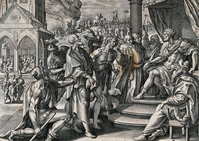 From the Greek geek (be patient, it's a rough cut): While most translations of Romans 12:9-13 are just fine, some nuances are lost (as those who speak other than English sometimes say) in translation. Here’s one . . . from verse 9 that’s worth noting. “Let love be genuine. Abhor what is evil; hold fast to what is good” (Romans 12:9, ESV).
There are no verbs. We (even they) had to provide them, but should not be at the expense of hearing how Paul set out his written words. And, in this case (v. 9), the two following participles should be heard as “how” (thus, my “by”) “the love” is “sincere,” that is, the manner in which “love” is shown to be sincere is in abhorring evil, holding fast the good. This gives Christian (or should I should, given the context, church) love content--action. And, also noting that Paul’s consistent use afterward of a specific, repeated grammatical construction (i.e., for other Greek geeks, a string of dative phrases—again with no verbs) probably indicates what “good sincere love acts like”: This is what church good love looks like: “Love one another with brotherly affection. Outdo one another in showing honor. Do not be slothful in zeal, be fervent in spirit, serve the Lord. Rejoice in hope, be patient in tribulation, be constant in prayer. Contribute to the needs of the saints” (ESV). Note: Of course, English versions need to iron or smooth out Greek-to-English renderings to make it more readable . . . most of our English translations, if watching all such linguistic and grammatical nuances of a language (i.e., the koine Greek of the NT) that was written to be heard and not read (so much) would be quite choppy and tiresome to just read . . . but sometimes it’s good to get at the Greek that was to be heard (and not just read).
0 Comments
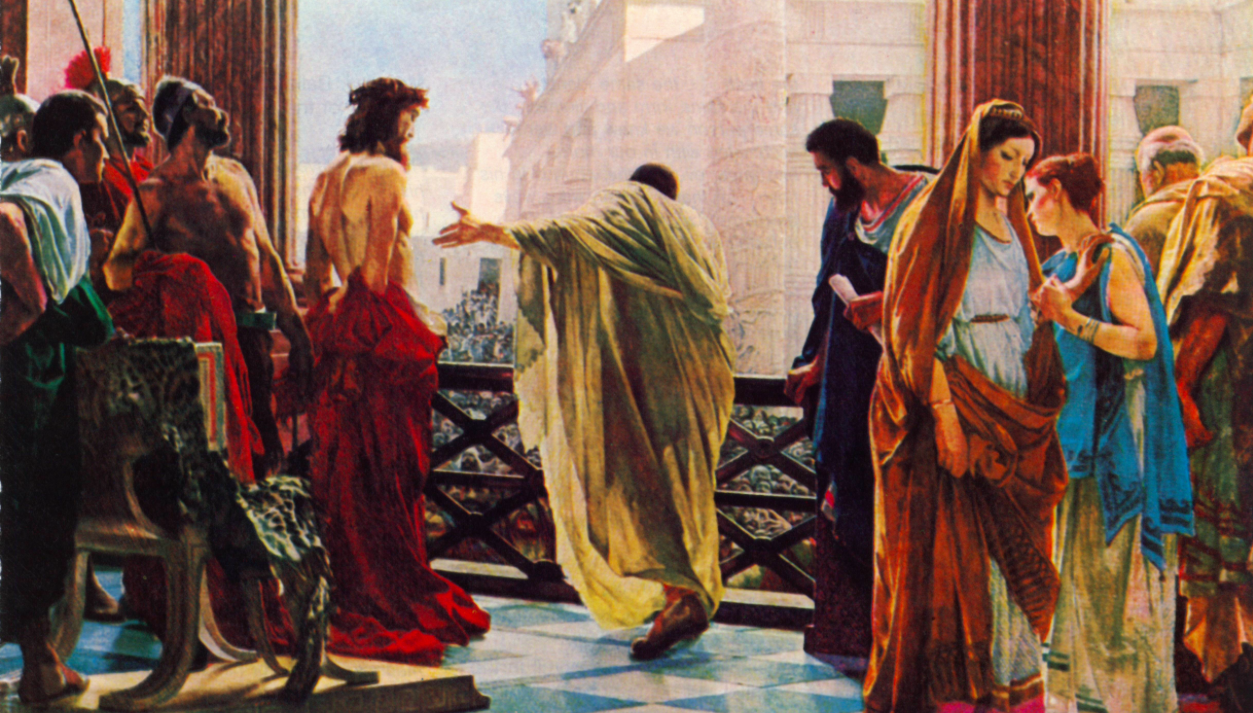 The passion week scene of Jesus and Pilate has provoked many thoughts for me as I prepare for this year's Easter season. I mentioned in a previous post that we ought to identify with the readers of this story and listen closely as they would have to John's telling of this story, and in particular the scenes of Pilate and Jesus (in John 18-19). This scene was an answer to them, as it still remains an answer for us, this is how things change–this is God's way to change the world, destroy powers, and save humanity (our friends, family, and neighbors, even our enemies). Looking to Ephesians for a moment: I am persuaded that the Gospel of John was written by John in the Ephesus area and its first audience was the gathered-churches throughout western Asia Minor (similar as Paul's Letters to Ephesians and Colossians). So, I start with Ephesians. Most take Paul’s Ephesians letter as an issue-less document (e.g., no real problem in the church) and crafted in such a way to address the church universal rather than the church local. Nonsense. Absolute nonsense. The Letter was written to the local churches—ye, household gathered-churches—throughout western Asia Minor . . . and given Ephesian's highly liturgical and hierophany-like nature, its temple-ish and sacred space framing . . . I take the issue to be: the gospel had so penetrated into the Gentile world that former pagan-temple worshippers entering into church fellowship needed to learn a new temple-life as church, something wholly different that there temple life in Roman, pagan culture and society. In this case, a gathered church that looked and felt more like a living room filled with unequal strangers, wives and husbands, children and slaves, and extended family . . . than a theater-like building with mostly equals sitting in pews . . . 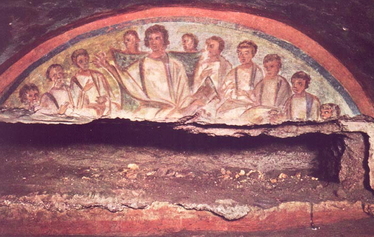 What would this scene, Jesus before Pilate, mean to the young church of mostly former (and some, for sure, still) temple-worshipping Gentiles and a number of Greek-speaking diaspora Jews living in western Asia Minor? We must acknowledge and grasp that there is no New Testament analogy for what we do on a Sunday morning. We’ve exchanged someone’s dining or upper room in the greater Ephesus or perhaps Laodicean region for a theater-like building that Caesar (now) sanctions. We have exchanged a meal, a diepnon or supper, with the broken break shared at the beginning of the meal to signify all those gathered at table were in Christ, a family, made one because of Jesus’ broken body on that criminal’s cross (cf. Eph 2:11-22) and where a cup would be raised after the meal (cf. Luke 22:20) to honor, not Caesar or a household deity, but the resurrected treasonous-traitor, Jesus, the real and only King of kings and Lord of lords, the One standing before Pilate–all exchanged for tokens and symbols rather than a gathered-church of unequals and strangers, poor and wealthy, beggars and doctors, the discarded and the elite, the temple prostitute and the patron, slaves and masters, orphans and male child-heirs, girls and children of slaves, women and men . . . this was the way to destroy the gods of the Greco-Roman empire and to topple a Caesar. There was only one king in that judgment hall. The one wearing a crown of thorns, bloodied by a criminal's beating, fist marks on his cheeks, in a mock purple robe. You see, we hear the passion-week inquisition where Jesus stood before Pilate with strange ears to the story . . . but . . . hear again we must . . . again, differently . . . we must cry out, 'We have no king but Jesus!' and abandon all our idolatries and allegiances to the kings and powers of this world. As it was for those early gathered-churches in western Asia Minor, so still for us: this is how God destroys the powers and changes everything. All the Wasted Passion Week Thought blogs >> Click Here
Wasted Passion Week Thoughts: “Show hospitality to one another”–– It's not what you think (really)3/5/2018 Some percolating thoughts on next week’s (3/11) sermon passage, 1 Peter 4:8-11, and in particular verse 9 in this context (see the last set of words and you will see why as you read my thoughts below):
Can’t get around it: NT (expected) hospitality was risky business. First, it was (as it should be now) developed around unequals and strangers, aliens to one’s own patria (family), peers, and peeps; and if expected hospitality (e.g., 1 Peter 4:9) is for the purpose of opening one’s home for worship, instruction, and fellowship—that is to be the space for a gathered-church—that gathering would be, by its very nature and habitus, subversive and treasonous, for not only would it upset and upend the cultural norms that stabilized the social order of the empire, a cup would be raised to celebrate and acknowledge that the dead-but-now-risen-traitor-criminal Jesus, not Caesar, was Lord and King—and coming again! Our modern expression of church does not fall under this type of hospitality (space), which needs to be—per the NT, really, ought to be—a part of our ecclesiology. The empire (i.e., our culture, social associations, and government) does not consider us too much of a threat in how we meet or who meets with us. What I find interesting is that when a church does start to act or envision church in this hospitality-way, it is a threat to the existing church. What’s up with that?
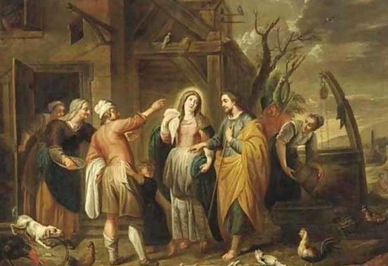 Just saw a rather good tag line in a meme: "Is there room for me in your Christmas?" Yes, I know a cliché, but this time there is valid application. I sure like this Christianese cliché more than the other-ad nausea-one: Jesus is the reason for the season--and here's why: Of course the original Christmas story teaches us somethings about the Christ, the second person of the trinity, the Son of God become flesh (very very important stuff), but these texts are to help us understand the nature of redemption--the gospel--and the purpose of the church. So who we are as church is to be lifted from this story. So, here goes: "We are the reason for the season." Not only did Jesus come to save us (i.e., the reason for the season), but we are Christmas to the dying world. And, I am wondering if all our attempting to follow the retail and commercial world in our presentation of the Christmas story has taken us away from our role in all the gospel. As for the other meme quote, "Is there room for me in your Christmas?" is so relevant a question for the church, the local church. There are so many people (do I really need to list them for you?) that are wondering about just this with regards to our churches. What, really, whom don't we have room for "at church"? Not only has retail highjacked Christmas, in some way the church has as well made retail our bottom-line; making it exactly the same as retail version to grow our churches, up-contributions, and make us feel all warm for this holiday season. Here's the rub: What does our way of "doing church" (and doing Christmas) suggest or teach others for whom we do and do not have room? Think more deeply about Christmas this year.  It is understandable that suburban, exurban, and affluent church congregations, typically, do not see the link between the gospel and the flourishing of their neighborhood. Here’s the problem: Which neighborhood? Whose neighborhood? And, O by the way, our neighborhoods by definition are flourishing. Suburban and exurban congregations tend to be a mix of like-minded, demographically related, geographically similar people who travel various distances away from their own neighborhoods to a building in an incongruent neighborhood (to most of the congregation), the place of gathered, weekly worship—the building they call “our church.” This is the habitus of Christians within suburban congregations each week. A habit that teaches, forms, and qualifies an understanding of the gospel. The neighborhood is a space we leave for church, more a concept of social structure rather than a concrete place or association; a place where my house is located, but detached from my church experience and faith. This offers a building-centered church experience that more easily relates to the command to love the Lord your God, but has no real, concrete relationship to love your neighbor(s) as yourself. In a real way, a suburban church congregation is without a neighborhood—at least without a specific one. There is no neighborhood for the church to ultimately be identified with, for the members are mostly transported from their actual neighbors and family in real neighborhoods to a one-size-fits-all neighborhood that is stuffed inside a building. Rather than a public faith that engages a neighborhood, practicing the second-which-is-like-unto-the-first-command to love one’s neighbor, more affluent and suburban/exurban congregations form a more privatized, truncated, thin faith (i.e., Christian experience) and, as a result, there is a bent toward more cognitive (knowledge-based) and behavioral outputs (i.e., activities) and outcomes. Thus, the church, the gospel, and discipleship are all aligned with a neighborhood-less social grouping, separated from the day to day realities of life in a neighborhood. Unexpectedly, the early church grew, not because they verbally witnessed, had an outreach program, or held bible studies; but, because they lived their daily lives in contrast to the world around them—their habits were different and their habits were noticed by their neighbors. And, not just in cultured, acceptable behavioral ways, but in concrete, intentional actions. Their discipleship included helping the poor, rescuing exposed (abandoned, thrown away) babies, adopting orphaned children, rescuing prostitutes (temple slavery), and meeting the needs of the widows (who were the most vulnerable and under-resourced population in the empire). This is how the body of Christ, the church, grew. The presence of Jesus was experienced in concrete intentional action through the church—practicing the presence of Christ amid neighbors. Typically for the non-urban churches, evangelism and mission is understood, not by kingdom righteousness, advocacy for injustice, and social action on behalf of a neighborhood, but by numbers of people funneled into a building for a worship service, a bible study, or special fellowship event—a head count of conversions or transfer growth. Church leadership institutes activities and behaviors to draw the unchurched out (and away) from their neighborhood (without actually going into those neighborhoods) and into the building (they call church), which is neighborhood-less (or at least in a neighborhood that is not their own). When the liminality of church life is separated from the daily life of a neighborhood, the gospel and its associated outputs (i.e., activities) and outcomes are disconnected from the life of their neighbors. When one’s own neighborhood consists of those who have had the privilege of flourishing and a church congregation is detached from a neighborhood, the Christian experience affirms a gospel unrelated to the flourishing of a neighborhood. Christian behaviors, then, are limited to relationships and social associations that affirm “traditional” cultural values (within that building) rather than including behaviors that understand the dynamic relationship between structures, systems, and people’s well-being within the context of a neighborhood. The gospel of the suburban church is a limited, one dimensional gospel. A one-dimensional gospel indicates solely a person/God dynamic relationship; whereas a multi-dimensional gospel includes the person/God dynamic and, also, creation/God, person/creation, and person/person. The habits of the suburban and exurban church makes it difficult to see the link between the gospel and the flourishing of a neighborhood.  For a more comprehensive study on the relationship between the gospel and social action, please take the time to read through my Wasted Evangelism, an exegetical commentary on Mark's Gospel. I am also working on another volume on Church Growth from an exegetical study in Ephesians, hopefully titled, Not (just) By the Numbers: Getting Beyond Building-Centered Church Growth in Search of Other Biblical Outcomes—a Thesis on Biblical Temple-Church Growth; see some posts related to these studies (evangelism and Not by the Numbers).
 E.M. Bounds wrote: “People are God’s method. The church is looking for better methods; God is looking for better people.” The church today is a far cry from this clarion call for godly people. We have turned everything on its head. By establishing church growth and church life on the basis of self‑interest, churches become more concerned about methodology than godliness. This concentration on methodology reinforces our privatized faith and increases the casualties of our individualism. [From my Destroying Our Private Cities.] E.M. Bounds, Power through Prayer, ed. Penelope J. Stokes (Minneapolis: World Wide Publications, 1989), 13.
 When the church, a church, or Christians align with a political agenda (right or left), there is great risk that innocent people will be put in harms way and, most certainly, whatever power is shared (between party and church et al.) is earthly power (but can be confused as God’s blessing). Perhaps this is why Jesus didn’t challenge his new flock to take over the Roman or Jewish government or defeat the High Priest or Caesar. The NT seems to present the church’s revolutionary power within a different model, a wholly other platform and venue. It is in the arena (literally) where Christians met certain death wherein the church had a platform for cultural and social change. Despite the musings of some that the early Jesus movement was a protest against an oppressive Empire, the apostolic and early church lacked the power and any public platform for social and cultural change. However, the household temple-church filled in Spirit was and is the platform for making known God’s cosmic reconciliation through which cultural and social change is inaugurated in the world, particularly the worlds of our neighborhoods and communities. The local church, that is, gathered congregations of people who identify with the Lamb who was slain and follow in the ways of Jesus, is the space where God brought and still seeks to bring about cultural and social change. Church—more so, local churches—is how God changed an empire and defeated Caesar. We need to consider this when asked, "How does Christianity address the issues pressing upon us today" or "What should Christians do to confront the issues of race, abortion, poverty, greed . . . ?" Christians did not “take to the streets,” but they made known God’s cosmic reconciliation as household temple-churches through the reoriented relationships of reciprocity as described in Ephesians 5:21-6:9. Paul called the gathered Christians, in particular Gentile Christian men (i.e., the husbands-fathers-masters), to act against their own social self-interests and against the norms of the dominant culture, literally taking up arms against the empire by adopting the reconciled, sacrificial love of Messiah Jesus, demonstrating reciprocity to wives, children, and slaves. Paul advocated the first #Wives/WomenLivesMatter, #ChildrenLivesMatter, and #SlavesLivesMatter (right there in Ephesians 5:21-6:9). The church venue was the incubator and model for systemic social change. The local church must now live “no longer as the Gentiles walk” (Ephesians 4:17). Paul did not seek to overthrow the authority structures of the culture in which the church found itself. But he does instruct the multihouseholds of God, the all-welcoming worshipping temple-church venues, in a new way of relating to one another in Messiah. This is one of the strongest arguments against homogenous churches and for multi-demographic churches.
When Jesus called his disciples to “follow me and I will make you become fishers of men” (Mark 1:17), most assume a positive evangelistic outcome of reaching people for Christ. Nothing could be further from the reality behind Jesus’ intentions in calling out followers to be such witnessing-fishers. At least the benign, banal application of making this verse a proof-text for “witnessing” is a shallow and narrow application of Jesus’ powerful imagery cast in this tremendous text.
Tax collectors are outsiders; rich they might have been, but they were in the eyes of temple leadership, traitors to God and to God’s people. Yet, the sinners are most certainly the uneducated serfs and peasants, farmers, and those who lived on the margins of life in and around Jesus’ house in Capernaum of Galilee (2:15). One cannot spin from this text a general characteristic that “sinners” are all sinners anywhere you find them. As are the "tax collectors," they are a specific demographic associated with those living as the poor and marginal of Jesus’ day. Jesus’ response, then, takes on an ominous shadow—a fisher shadow, standing on the shore, cast into the waters of those that are "healthy." True fisher-followers of Jesus will not rationalize their standing in the community nor their affluence, but will count their privilege, their advantage, at the disposal of the “sick” who need a physician. Paul is not far from the same imagery when he describes how Jesus took his advantage (his privilege) and gave it all on behalf of all those with the greatest of disadvantage. Have this attitude in yourselves which was also in Christ Jesus, who, although He existed in the form of God, did not regard equality with God a thing to be grasped, but emptied Himself, taking the form of a bond-servant, and being made in the likeness of men. Being found in appearance as a man, He humbled Himself by becoming obedient to the point of death, even death on a cross (Phil 2:5-8). Most likely Amos 4:1-2 is one of the underpinning Old Testament referents that would have given the disciples a frame, a rather menacing edge, for understanding the potency of Jesus’ call on their lives. In view of the inclusion (contextually) of Amos 4:1, namely the “cows of Bashan” referent, I have become wary of the poorly distributed resources, talents, and wealth among the richer, more affluent churches at the expense of the poorer churches, neighborhoods, and urban mission fields. By “expense” I am thinking biblically, not culturally, socially or (heaven forbid) politically, nor through the lens of class, but by the very New Testament discipleship implications, namely that those with advantages (“privilege,” if I may) who are called by their association with Jesus to help those who are at a disadvantage. The assumption that it takes more money to reach the rich and affluent than the poor is turned on its head by the very presence of the Kingdom (cf. Mark 1:17 with Mark 1:14-15). A more gospel-centered and mature view of discipleship seem to argue that it takes far more resources to go into the poor urban fields to bring forth a harvest for the gospel of the kingdom. These are under-resourced communities in every imaginable aspect of life. As affluent Christians, we tend to justify our station in life as a combination of gift and hard work and hear any talk of “privilege” as a justification of those of lesser means, with poorer gifts, and perhaps, with what we perceive, a lesser work ethic to grab what we have for themselves. Is there no wonder the affluent in the days of both Amos and Jesus attempted to rid themselves of the troublemakers who upset the "healthy's" status quo? This will be the lot of fisher-follows of Jesus in any culture. Following Jesus, as the gospel is imagined by Mark (and the other Gospel writers), put us at odds with everything we hold dear, in particular those who have the advantage in resources are to empty themselves on behalf of those who are at a disadvantage (cf. Phil 2). The fisher-follower mission is toward the sick (of our society), not the healthy (in our society)—toward the disadvantaged and not the advantaged. Michael Card prophetically reflects this Marken view of Jesus and the gospel in the words of his song, The Stranger:
For a youtube of Michael Card's "The Stranger" >> Click here *See chapter 3, “‘You Will Appear as Fishers’ (Mark 1:17): Disciples as Agents of Judgment,” in my Wasted Evangelism for a further and more detailed study of the Mark 1:17 “fishers of men” passage.
We do not lack for sermons and books on the topic of discipleship. Some Christians speak about discipleship as if it is something to be into—like being into politics or running or weight loss. But such a view of discipleship betrays some faulty assumptions. First, we tend to formulate the call to discipleship as an option for Christians to consider. And second, there is a tendency (especially in today’s consumer oriented churches) to make discipleship attractive. The fact is, there is nothing attractive about discipleship. It calls for an undivided loyalty to the gospel. It calls people to place themselves at the disposal of the Church and Christ's work through it. Dietrich Bonhoeffer said it best: “When Christ calls a man, he bids him come and die.” Both Timothy and Epaphroditus exemplify what J.B. Phillips remarked about the early Church: Perhaps because of their very simplicity, perhaps because of the readiness to believe, to obey, to give, to suffer and if need be to die, the Spirit of God found what He must always be seeking—a fellowship of men and women so united in faith and love that He can work in them and through them with the minimum of… hindrance. What Paul implies in his descriptions of these two men indicates what the true Christian life is. The deeper Christian life is a call to discipleship, a call to authentic Christian living. Whereas sanctification is the process (and progress) of becoming more like Christ, discipleship is the discipline, the lifestyle of the one who is becoming more like Christ. Making one's way through 2:19-30, we discover the marks of the true disciple of Jesus Christ. Paul certainly is informing his friends and church plant back in Philippi about his situation. But in doing so, he uses special words to describe Timothy and Epaphroditus. He wants the Philippians to know these two men are models of the Christ hymn Paul earlier cited (2:6 11). The narrative implies instruction. We should resolve to give the God's church, the local church, and the gospel priority (2:1 4, 12 18). 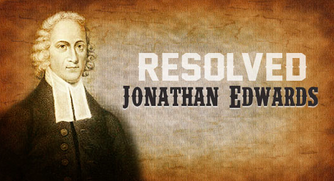 Biographies, autobiographies, and the diaries of great Christian men and women fascinate me. Giants such as John Wesley, George Whitefield, David Brainerd and Jonathan Edwards captivate me. I am convicted, motivated, and humbled by the accounts of those whom God has greatly used to promote His cause and increase His kingdom. In eternity I am sure we will learn of countless others unmentioned in the history books and unnoticed by the general public. Jonathan Edwards, born in 1703, enrolled at Yale at age thirteen. (Thirteen, people!) He was a key instrument through whom God brought a great spiritual awakening to early colonies that had become careless about the faith of their forefathers. His influence was felt in much of New England, New York and New Jersey. Eventually Edwards was asked to become president of Princeton College, a school then devoted to training church leaders. The life of this incredible man of God ended one month after he arrived at his new post. Ah, but what a life! Jonathan Edwards has been the subject of many biographies. All seek to discover what motivated him, what drove him, what fed his passion. For answers, we must return to Yale College and note the aspirations of this young student. Edwards was convinced he must make some resolutions in the presence of his God. The list numbered 70 items, all of which he committed to memory. I am particularly interested in "Resolve 6," which certainly summarizes the passion of Edwards’ heart: “Resolved to live with all my might while I yet live.” In pondering that resolution we must keep two things in context. First, life to young Edwards was a gracious gift from God. Second, all of his resolves were made in the consciousness that God was looking on. His first resolution, in fact, was to “do whatsoever I think to be most to the glory of God.” Since God’s honor and glory were at stake in his life, Edwards further resolved “to find out fit objects of liberty and charity.” Further, he would “live so as I shall wish I had done when I come to die.” This is a reflection of biblical discipleship, most rare in today's modern, consumer-oreiented church. This is a short excerpt from my book, Destroying Our Private Cities, Building Our Spiritual Life, a lay commentary on Paul’s letter to the Philippians. Here’s a sample chapter, “Putting Jesus Back into Our Potential.” Of course you can click through to Amazon to purchase the book, too!
|
AuthorChip M. Anderson, advocate for biblical social action; pastor of an urban church plant in the Hill neighborhood of New Haven, CT; husband, father, author, former Greek & NT professor; and, 19 years involved with social action. Archives
February 2024
Categories
All
|
Pages |
More Pages |
|
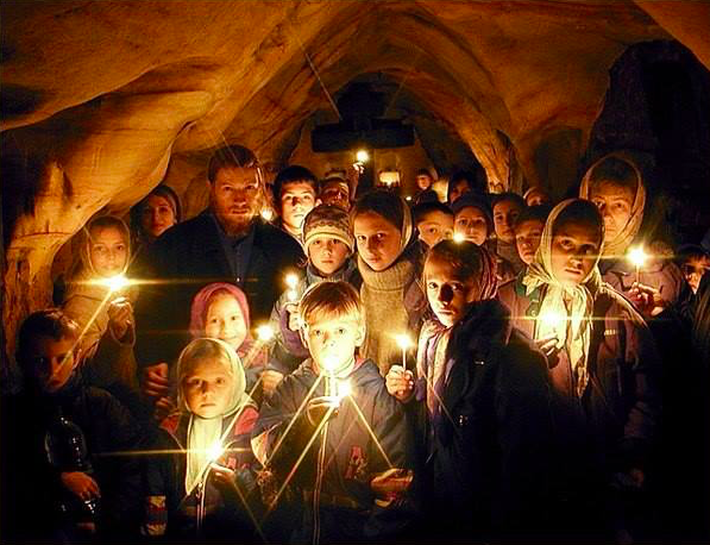
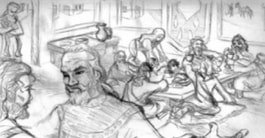
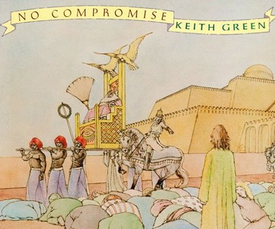
 RSS Feed
RSS Feed